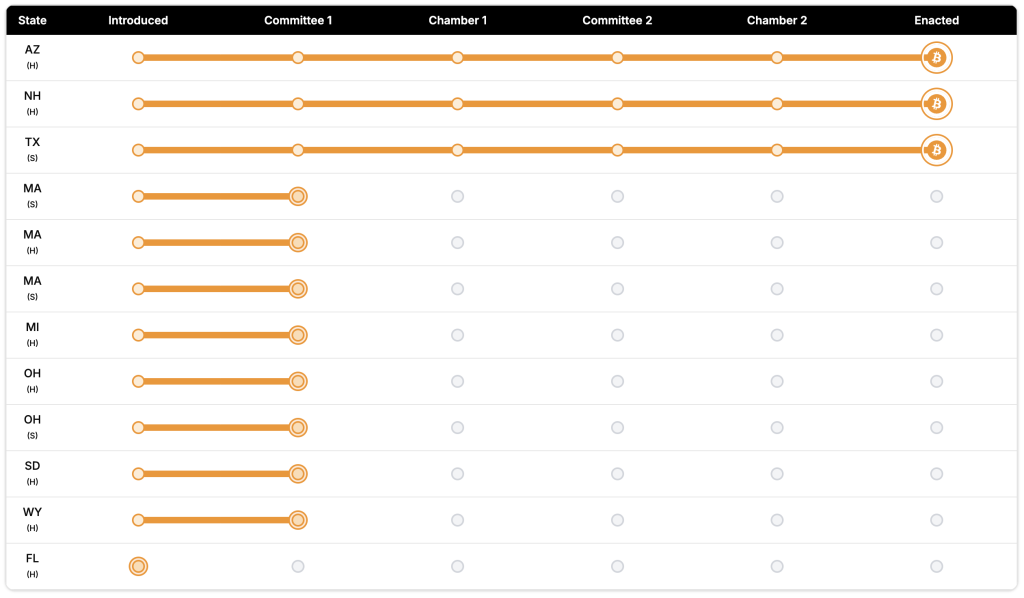
Florida lawmakers have introduced a bill that seeks to authorize the state to invest specific public funds in Bitcoin. The proposed legislation was introduced at the 2026 legislative session.
The House Bill 183 authorizes the state’s chief financial officer to allocate 10% of public funds into Bitcoin and ETFs. The specific public funds include the General Revenue Fund and the Budget Stabilization Fund.
Further, the state’s retirement system would be subject to similar allocation guidelines, subject to some limitations and conditions.
Former Florida CFO Jimmy Patronis already advocated for the state to include Bitcoin in Pension Funds last year. He called Bitcoin “digital gold,” which would help diversify Florida’s portfolio.
Strict Custody and Compliance Measures
The detailed proposal stipulates stringent custody safeguards, mandating that crypto holdings be managed by the CFO and through qualified custodians.
Florida legislators crafted these guardrails to align with federal compliance standards and institutional investment best practices.
The legislation, if approved, would allow Floridians to pay certain taxes and fees in digital assets. These payments would then be converted to dollars and sent to the state’s general revenue fund, the proposal read.
Besides, the bill clarifies that digital assets are not limited to Bitcoin or tokenized securities, but could also include non-fungible tokens (NFTs).
Florida: From Stalling BTC Reserve Plans to Strategic Leap
In May, Florida abandoned efforts to establish a strategic Bitcoin reserve, placing the state alongside Wyoming, Pennsylvania, Montana, and Oklahoma, which have recently failed to pass legislation allowing Bitcoin-based investment strategies.
The latest bill proposal aligns with similar frameworks enacted by Arizona, New Hampshire, and Texas, per tracking platform Bitcoin Laws. Meanwhile, other states are preparing for new sessions in early 2026.

“States are seeking to modernize their balance sheets,” said Julian Fahrer, founder of Bitcoin Laws.
The House Bill 183 is awaiting further hearings in the Florida House. The legislation would become law only of it clears the Senate approval and passes the governor’s signature.




